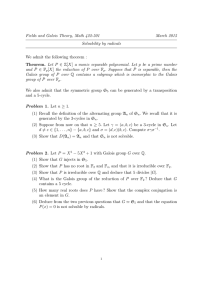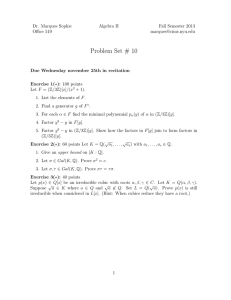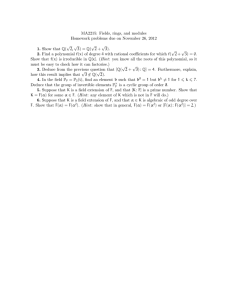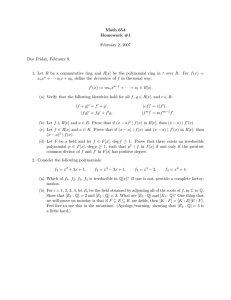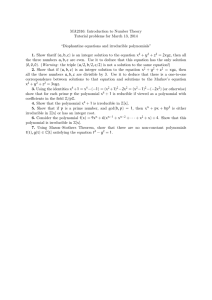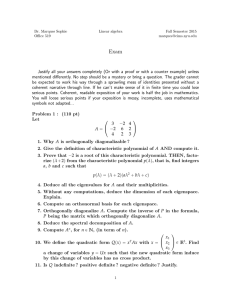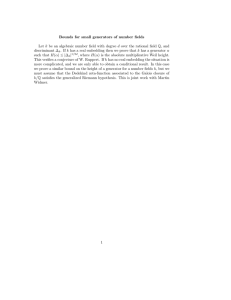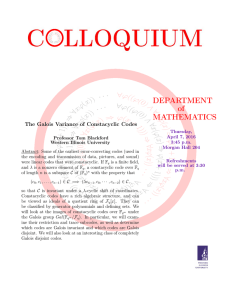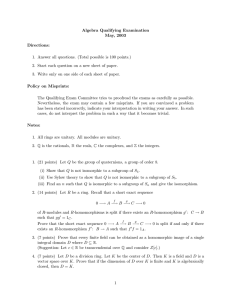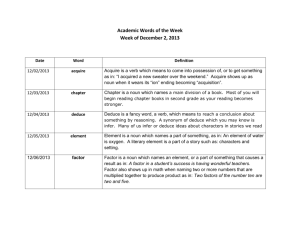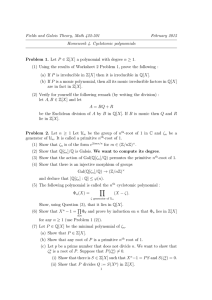FINAL EXAM (1h50)
advertisement
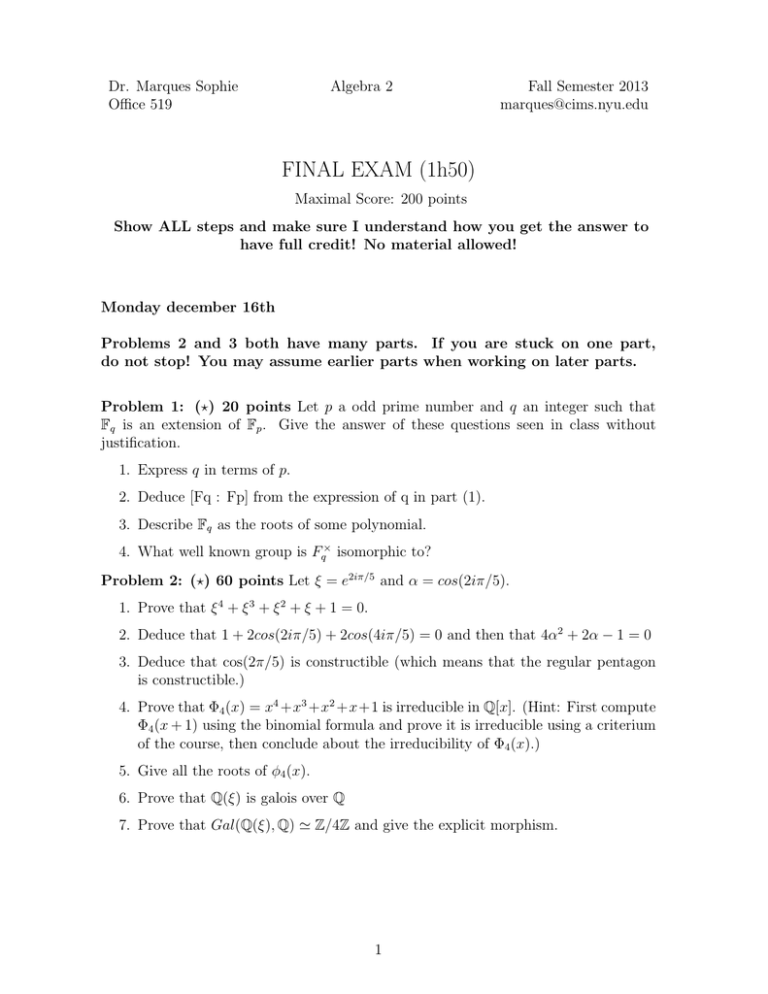
Dr. Marques Sophie Office 519 Algebra 2 Fall Semester 2013 marques@cims.nyu.edu FINAL EXAM (1h50) Maximal Score: 200 points Show ALL steps and make sure I understand how you get the answer to have full credit! No material allowed! Monday december 16th Problems 2 and 3 both have many parts. If you are stuck on one part, do not stop! You may assume earlier parts when working on later parts. Problem 1: (?) 20 points Let p a odd prime number and q an integer such that Fq is an extension of Fp . Give the answer of these questions seen in class without justification. 1. Express q in terms of p. 2. Deduce [Fq : Fp] from the expression of q in part (1). 3. Describe Fq as the roots of some polynomial. 4. What well known group is Fq× isomorphic to? Problem 2: (?) 60 points Let ξ = e2iπ/5 and α = cos(2iπ/5). 1. Prove that ξ 4 + ξ 3 + ξ 2 + ξ + 1 = 0. 2. Deduce that 1 + 2cos(2iπ/5) + 2cos(4iπ/5) = 0 and then that 4α2 + 2α − 1 = 0 3. Deduce that cos(2π/5) is constructible (which means that the regular pentagon is constructible.) 4. Prove that Φ4 (x) = x4 +x3 +x2 +x+1 is irreducible in Q[x]. (Hint: First compute Φ4 (x + 1) using the binomial formula and prove it is irreducible using a criterium of the course, then conclude about the irreducibility of Φ4 (x).) 5. Give all the roots of φ4 (x). 6. Prove that Q(ξ) is galois over Q 7. Prove that Gal(Q(ξ), Q) ' Z/4Z and give the explicit morphism. 1 Problem 3: (?) 120 points √ 1. Show that the field Q( 2) is isomorphic to Q[x]/(x2 − 2). √ √ 2. Is Q( 2) a galois extension of Q? Describe the Galois group Gal(Q( 2), Q) and give a isomorphism to a classic group. √ 3. Compute [Q( 2) : Q]. √ 4. Give all the proper intermediate extensions between Q( 2) and Q. √ 5. √ Find a monic polynomial p(x) of degree 4 (with coefficients in Q) so that p( 2 + 5) = 0. √ √ √ √ 6. Show that 2 − 5 ∈ Q[ 2 + 5] √ √ √ √ 7. Deduce that Q[ 2 + 5] = Q[ 2, 5] √ 8. Show that 5 is not a square in Q[ 2] √ √ 9. Deduce that the 2 + 5 has degree 4 over Q. 10. Deduce that the polynomial found in part (a) is irreducible over Q. √ √ 11. Deduce [Q[ 2, 5] : Q]. √ √ 12. Give a ”simple” basis for Q[ 2 + 5]. √ √ 13. Is the extension Q[ 2, 5] Galois over Q ? 14. (Bonus) Describe√it Galois group and describe all the proper intermediate exten√ sions between Q[ 2, 5] and Q. 1 1 (?) = easy , (??)= medium, (???)= challenge 2
